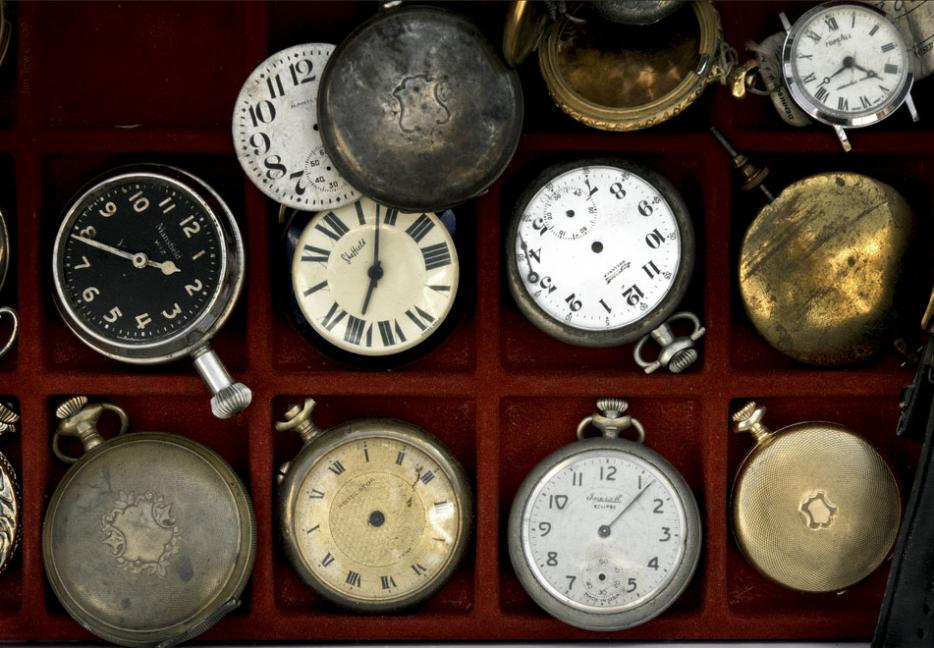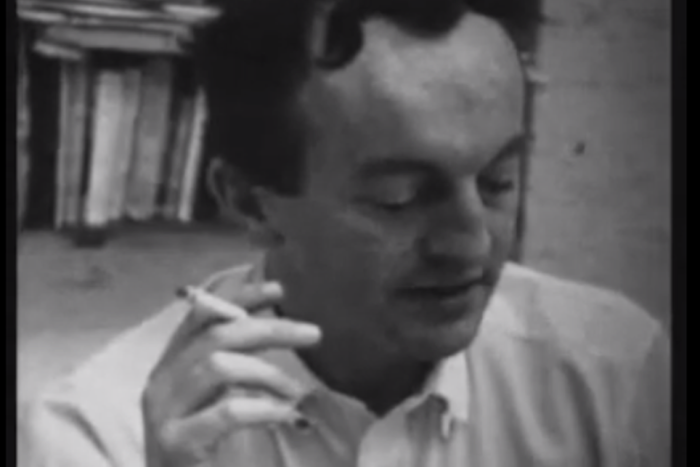I love motivational literature. I can spend hours reading sites like Lifehacker, which offers advice of the “hack your life” variety (use this app for to-do lists! Use this app to organize your apps! Use your bra underwire to pick a lock!). I have ebooks on how to write better and how to produce ideas better. I own physical books on time management, optimizing your brain performance, regulating your stress levels at the workplace. If I keep reading this stuff, I believe I’ll become so efficient that I will no longer have to walk like a normal person. I will just sort of float, on the strength of my superior knowledge, from point A to point B.
I get the irony in spending hours reading about how to be more productive. I could take that time and just be productive. But I need the comfort I get from writers who claim to have the secret to being more productive. It is, as Lifehacker writers themselves have warned, productivity pornography. As long as I define myself by my work, I will be trying to improve the way I do it, and getting myself off on an idealized version of how.
My favorite source of productivity porn is Bullish, Jennifer Dziura’s twice-weekly column on TheGloss. Dziura is a certified genius—perfect scores on the SAT, GRE, and GMAT—and she tutors students from all over. Before that, she started her own Internet marketing firm from her Dartmouth dorm room, graduating from an Ivy League university with a handful of employees on her payroll. Through Bullish, Dziura advises young people just starting their careers on how to work harder, work better, and then work some more. And after seeing that Dziura was looking for a virtual assistant to help her launch a series of businesses on top of her existing jobs, I bullishly applied (you can read all about that here). So, full disclosure: I work as Dziura’s virtual assistant in order to balance my full-time volunteer position as the publisher of WORN Fashion Journal.
The article that made me a lifetime Bullish reader was called “Maybe Work-Life Balance Means You Should Work MORE.” I read it at least once a month. Dziura writes that we should not think of “work-life balance” in terms of a week, as in five days of labour followed by two days of rest. “Balance,” Jen explained, “is not for the young and sprightly—instead, think of work-life balance over the course of your entire life. Do you intend to retire some day? Would you like to have a baby and invest substantial time in caring for it? If there is some phase of your life during which you will be working 15 hours a week, then maybe you should work 60 now.” Okay. I will.
Dziura refers to Laura Vanderkam’s 168 Hours: You Have More Time Than You Think, which posits that since we all get the same amount of hours in a week, we all have the opportunity to do almost everything we want to do. Vanderkam explains it like this: “With 168 hours in a week, you can work 40, sleep 8 per night (56 per week) and still have 72 hours for other things. That’s a lot of time. You can work 50 hours, get enough sleep, and still have 62 hours for other things. Yet many people who work 50 hours per week think they don’t have time for a personal life. The time is there. You just have to make the most of it.”
How is that not the most inspiring thing you’ve ever heard? I can of course work two full-time jobs with two freelance contracts on the side and sleep eight hours a night and have daily meaningful conversations with my boyfriend and see my friends on a regular basis and learn to speak French and maintain a clean closet and go to the gym and spend two or three hours a day on Twitter and Facebook. I read that book three times in 2012 and once more in 2013—to prepare for this article, naturally.
Perhaps self-help literature is like a roast chicken glazed with hairspray—it looks better than it tastes.
I sometimes find myself referring to self-help books with drug terminology. Finding a self-help book that speaks to you can create an inflated sense of self-esteem and empowerment. The first time I read 168 Hours I was filled with so much energy and excitement that I nearly broke my keyboard aggressively tapping out well-balanced to-do lists. But, like any drug, there’s no high like that first high—and the first high always wears off. The lure of time-sucking behaviours like sleep and friendship and mindless Internet browsing just becomes too strong. And then I need to start all over again with another book—my brain needs that fix.
In ”The Paperback Quest for Joy,” Vanderkam’s excellent essay in the City Journal about America’s longtime love affair with self-help books, we learn how the self-help industry is an ouroboros of sorts: she speaks with Steve Salerno, a former editor for Men’s Health magazine (a monthly self-help title if I ever saw one), who found in his research that “the most likely customer for a book on any given topic was someone who had bought a similar book within the preceding eighteen months.” This doesn’t speak very highly of their effectiveness. No one is buying a self-help book, taking its advice, and waking up the next day as Beyonce.
When I spoke with Vanderkam, she reminded me that self-help literature should be used as a training tool rather than a set of instructions. “[Self-help books] provide a jolt of motivation for the hard work of personal change,” she says. “Sometimes you need more than one jolt, so that’s why people read new self-help books, or reread favorites.” Experts are always advising us to switch up our physical exercise routines. When the muscles in our bodies get used to the same reps, they stop responding to them. Maybe we need self-help books to exercise our minds in the same way. I am constantly seeking new advice on the best way to format a to-do list or avoid a clogged email inbox, not because the previous advice failed, but because, as my brains gets used to doing the same thing over and over again, I stop being energized by the process, and lazy behaviours start to sneak in.
In Emily Keeler’s 2012 report card for Hazlitt, I was really struck by her admission that she is a fundamentally greedy person, that she always wants to be the girl with the most cake, a sentiment that echoes a Simone de Beauvoir quotation I’ve always loved:
“I am awfully greedy; I want everything from life. I want to be a woman and to be a man, to have many friends and to have loneliness, to work much and write good books, to travel and enjoy myself, to be selfish and to be unselfish… You see, it is difficult to get all which I want. And then when I do not succeed I get mad with anger.”
That sums up all of my career aspirations. I’m aware that too much proverbial cake can make you barf for real, and yet I still want it all and then I want more. The idea that there are only so many hours in a day is incompatible with my belief in what I should—nay, must!—accomplish. I will work as many jobs as I can as long as I’m lucky enough to have bosses that hire and inspire me, and anyone who dares to challenge me will face my formidable wrath.
There’s a cliché about people buying cookbooks because they like to look at the photos of immaculately styled food, not because they want to attempt the recipes. Most forms of entertainment are exercises in wish fulfillment: television shows featuring extremely beautiful, wealthy people engaged in outlandish conflict; movies featuring extremely beautiful, wealthy people bickering about their marriages; novels about extremely beautiful, wealthy people…you get the idea. When I read about people who balance demanding and creatively fulfilling careers with full, happy lives, I fantasize that I could be one of them.
Perhaps self-help literature is like a roast chicken glazed with hairspray—it looks better than it tastes. I know I can’t always resist the instant gratification of laziness, but I want to dream about becoming the most-Beyonce version of myself, and I hope that one day my desire to be The Best Me 100% of the time will be stronger than my desire to scroll through feminist porn gifs on Tumblr. When I start slipping, I return to 168 Hours. I go back to my productivity porn.






